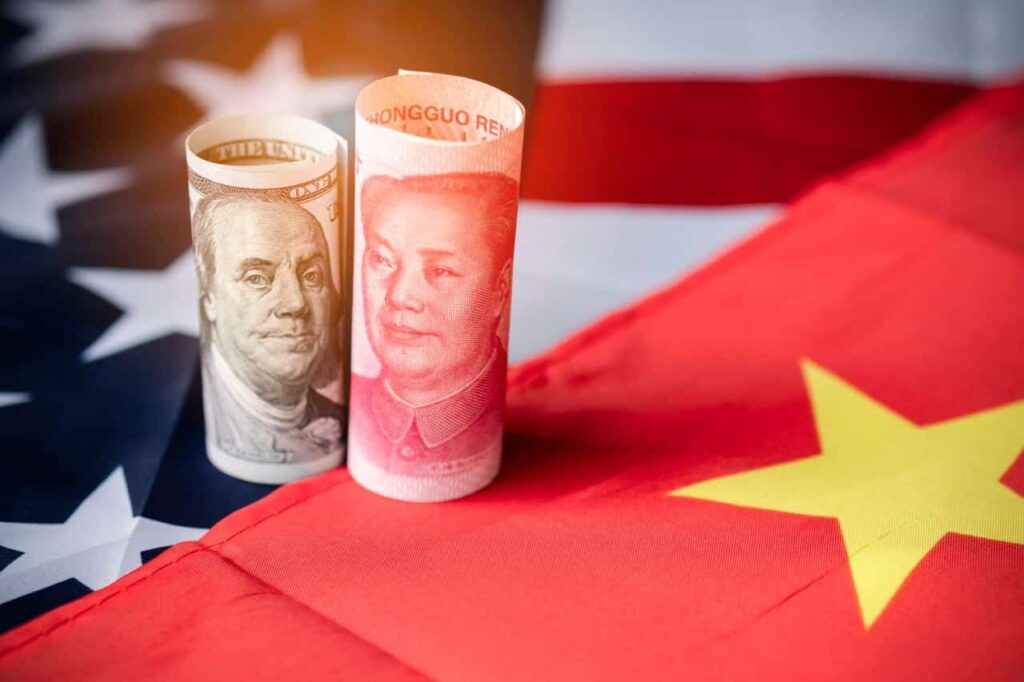The US and BRICS: Diverging Paths in the Digital Currency Race
In a surprising and headline-grabbing move, former President Donald Trump made an appearance at the Bitcoin Conference 2024, where he articulated the potential of Bitcoin to function as a reserve currency. This stance signals a noteworthy shift in US strategy concerning digital assets, given Trump’s renewed focus on the cryptocurrency sector amid his re-election campaign gaining momentum. As he called for American leadership in the digital currency realm, the implications for global economic dynamics and the US dollar were laid bare.
Trump’s Bold Bitcoin Proclamation
Donald Trump has previously expressed a keen interest in the United States taking a leading role in cryptocurrency. At the recent conference, he reiterated the need for the country to dominate the Bitcoin industry, positioning it as a strategic maneuver against economic competitors, particularly China. This aligns with his broader political message advocating for American supremacy in emerging technological and financial fields.
BRICS Nations’ Stance on De-Dollarization
To understand the full scope of Trump’s Bitcoin strategy, it is crucial to explore the response from the BRICS nations – Brazil, Russia, India, China, and South Africa. In recent years, this bloc has aggressively pursued de-dollarization, aiming to reduce reliance on the US dollar in global trade. By negotiating deals that favor native currencies over the greenback, BRICS is actively reshaping the global economic landscape.
Peter Schiff, a prominent economic commentator, took to X (formerly Twitter) to address China’s reaction to Trump’s Bitcoin proclamation. “Trump claimed that America must dominate the Bitcoin industry, as if we don’t, China will,” Schiff noted. “China has no interest in Bitcoin. They already made mining illegal. China is happy to let the US waste its resources on Bitcoin.” This sentiment underscores China’s strategic focus on developing its own digital currency, the digital yuan, rather than competing in the Bitcoin space.
The Implications for the US Dollar
The BRICS bloc’s disinterest in Bitcoin and their broader de-dollarization efforts could significantly impact the US economy. The United States’ adoption of Bitcoin as a reserve currency hinges on its global acceptance and utilization. Yet, if BRICS nations and their trade partners continue to distance themselves from Bitcoin, the US dollar could face unprecedented challenges.
The economic backdrop for this discussion is dire: the United States’ national debt recently surpassed $35 trillion. The potential economic upheaval from accelerating Bitcoin adoption or a misstep in digital currency strategy could exacerbate this precarious financial situation.
BRICS’ Strategic Moves
Beyond their rejection of Bitcoin as a reserve asset, BRICS members are also developing a unified payment system and exploring the creation of a native digital currency. These projects represent a fundamental shift toward reducing dependency on Western financial systems and could redefine international trade dynamics.
What’s Next?
As Trump champions Bitcoin amidst his re-election campaign, and the BRICS nations forge ahead with their de-dollarization agenda, the global monetary landscape appears set for substantial transformation. The divergence between the US and BRICS in digital currency strategies may influence future geopolitical and economic power balances.
To follow these developments, one should keep an eye on evolving policies from both Washington and BRICS capitals, as these will shape the future of global finance and the role digital currencies will play in it.
For more detailed insights into China’s stance and actions regarding digital currencies, you can visit the official website of China Observers in Central and Eastern Europe.
In conclusion, Trump’s endorsement of Bitcoin as a strategic reserve asset contrasts sharply with the BRICS nations’ concerted efforts to reduce the dominance of the US dollar. This burgeoning divide will be a critical determinant of future economic stability and innovation in global financial systems.
